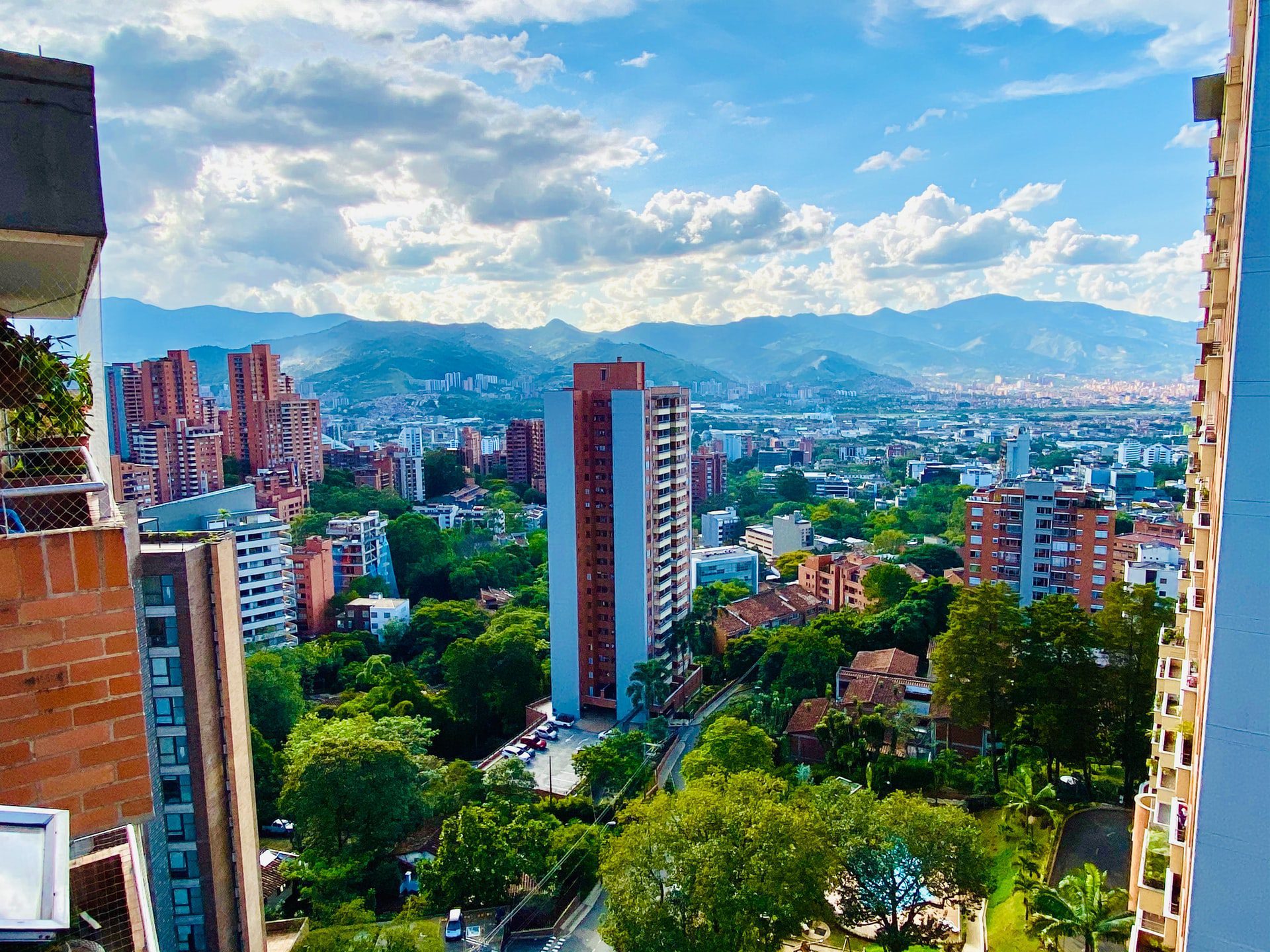|
|
Before there was the digital nomad, there was the expat.
The term expat is generally used for people who relocate to another country, usually for work purposes, but people who retire overseas are also often called expats. Expats often relocate because their work requires them to be in another location. This means that they will probably have an office, colleagues, and infrastructure in their new home. While they will probably travel to see the world on their new doorstep, they generally have a specific country or city that they consider their base of operations or their home.
It is worth noting here that expat is a bit of a loaded term, since people from richer countries who decide to live elsewhere are often called expats, while people from other countries who choose to live in places such as America or Europe are called immigrants.
Digital nomads are different in that they work remotely, often but not always for companies in their home country. The fact that they don’t need to be in a specific location gives them the freedom to travel while they work. The places that they travel to are not usually connected with their work. Digital nomads are also traditionally seen as globetrotters, who hop around to different locations, rather than stay in one place.
But what if you are a remote worker overseas, but you decide to stay in one place for whatever reason? This might have always been the plan, or you might simply have fallen in love with a certain location, and so keep returning there until it finally becomes home.
The term digital expat is often used to describe these individuals who have a foot in both the digital nomad and the expat camps. Let’s look at some of the specific characteristics, advantages, and challenges of the digital expat lifestyle.
Advantages of the Digital Expat Lifestyle
Accommodation is cheaper and more flexible
Accommodation can be one of the biggest challenges as a digital nomad. Finding short-term accommodation often means paying a premium, taking advantage of shared accommodation, and basically not having a lot of control over your living space.
As a digital expat, who plans to stay somewhere in the long term, you have the advantage of being able to find accommodation like a local. This usually means significantly cheaper prices, and that you have the time (and authority) to personalize your space.
This probably also means that you have a decent kitchen where you can prepare and store food, and that you have an opportunity to get to know the local markets and eating customs. Basically, as a digital expat, where you lay your head feels much more like home.

It is easier to maintain your life infrastructure
Since digital nomads are always on the move, they need to find life infrastructure that supports nomadism. This generally means expensive travel insurance, pricey international health insurance, fancy multi-national banking applications, and so on.
This is something else that digital expats can do cheaper and more effectively. They can invest in local health and content insurance, open local bank accounts, and only worry about moving money between their two primary currencies, rather than finding a way to get their hands on cash in scores of different countries.
The vast majority of digital nomads maintain a primary address back home to manage their lives. While digital expats may well choose to do this as well, they can also maintain a new local address for correspondence and inserting on important documents, such as visa applications.
Even knowing where and how to pay your taxes is easier as a digital expat.
You can still travel
While you may have chosen a home base, the fact that you work remotely as a digital expat means that you don’t have to stay there all the time (or even most of the time). If you decide that you would like to spend a month visiting somewhere else, you can put on your digital nomad shoes and go walkabout for a while.
This is one of the most significant advantages of the digital expat lifestyle over the traditional expat lifestyle. Expats usually must be in a certain place at a certain time, so they have the same struggle of finding a time to take a vacation as traditional workers back home.
Whether you travel as a digital expat or a nomad, make sure you have travel and medical insurance wherever you go. Check out SafetyWing’s coverage packages for digital nomads.

You can form closer relationships
One of the biggest struggles that digital nomads face is loneliness and isolation. Passing through locations relatively rapidly often means that new connections are superficial. While digital nomads usually prioritize maintaining relationships with loved ones back home, they miss out on the day-to-day intimate contact that is vital to our mental health.
Moreover, if digital nomads are traveling through a variety of countries with different languages, unless they are polyglots, the language barrier often limits who they can connect with.
Since digital expats are prioritizing one place, they will probably only have one language to master. The time that they spend also means that they have the opportunity to form deeper and more fulfilling relationships that are better for their happiness and mental health.
It is easier to maintain a routine
While part of the point of digital nomadism is breaking routine, when you are on the road, you may quickly realize how valuable some routines can be.
While being constantly on the move might seem like a great way to stay healthy, a nutritious diet, regular exercise, and proper sleep cycles are often the first thing to go out the window. You will also find that getting in the right mindset to produce quality work is a ritual, and one that is much harder to maintain when you are constantly on the move.
Digital expats can create new rituals in their new home that promote a healthy lifestyle and positive work environment. When it comes to work, this often means that they can get more done in less time. Consequently, digital expats might have even more free time to enjoy their lives.

You are still challenging yourself
Some people are attracted to the idea of spending a period as a digital nomad as a way of challenging themselves. They want to prove that they can survive on their own in the unknown.
Becoming a digital expat can seem like an easier alternative. But, while the challenges are different, they are still very real and require self-reliance, confidence, and bravery to overcome.
It is hard to conduct your entire life in a new language and learn and adapt to ways of doing things that may be very different. Not only living but establishing yourself in a new community from scratch can be very challenging, especially if you are seen as an outsider, and not necessarily a trusted one. While digital expats have the opportunity to form deeper connections, going beyond the surface with someone who has very different life experiences and cultural norms is also very challenging.
Challenges of the Digital Expat Lifestyle
We’ve already looked at some of the challenges of being a digital expat, but also the fact that the challenge are part of the reason to do it! So, instead, let’s look at what you potentially lose when you choose a digital expat lifestyle over a digital nomad lifestyle.
You can fall back into the same routines
Human beings are creatures of habit, which is often why we get stuck in the same routines. The digital nomad lifestyle can force you out of many routines as you are constantly confronted by newness and change. But as a digital expat, the newness can wear off, and you can find yourself falling back into the same routines that you didn’t like before.
You can easily find yourself working long hours, doing the same things every day, and curling up and watching TV after a long week rather than taking advantage of the weekend to explore.
There is nothing to say that this will definitely happen to a digital expat, or the digital nomads are immune from similar traps. But the digital expat lifestyle can make it easier to fall back into the world of habit and routine.

You will see less of the world
Life is all about choices. You can have anything you want, but you can’t have everything you want. Prioritization is necessary.
The more time you choose to spend in one place, the less time you have to explore others. So, while digital expats should still have the freedom to travel when they choose (unlike expats), they are likely to see a lot less of the world than digital nomads.
The trade-off is getting to know their new chosen home better, which many people will consider preferable. Which is best depends on the priorities of the individual.
Something In Between – Slowmadism
While we have been looking at digital nomads, digital expats, and expats as they are traditionally defined, the whole point of a digital nomad lifestyle is that you don’t have to live by anyone else’s rules. People choose the lifestyle so that they can create the flexibility to live their lives how they want to.
Maybe you want to spend the time you’ve gained traveling the world, or maybe you want to spend the time becoming the world master in your favorite video game. The point is that the choice is yours.
But if you are drawn to something that sits somewhere between being a digital nomad and a digital expat, one option to explore is slowmadism.
Slowmadism is just a way of referring to the digital nomad lifestyle conducted at a slower pace. Rather than rushing around to see as much of the world as possible as quickly as possible, you spend a bit more time in each place.
This lets you get to know the places that you do choose to visit better, lets you work and live more efficiently while there as you have more time to optimize your routine, and lets you reduce your carbon footprint and have a more positive impact on the communities that you spend time in.
Read our complete discussion of slowmadism here.
Slowmadism can be a great halfway house between digital nomadism and the digital expat lifestyle. You might choose to spend six months in each place, really getting to know the place, the people, and establishing yourself. After that, you move on and do it all again.
Of course, the biggest danger with this approach is that you will fall in love with one of the places that you visit and want to stay. But is that such a bad thing?












